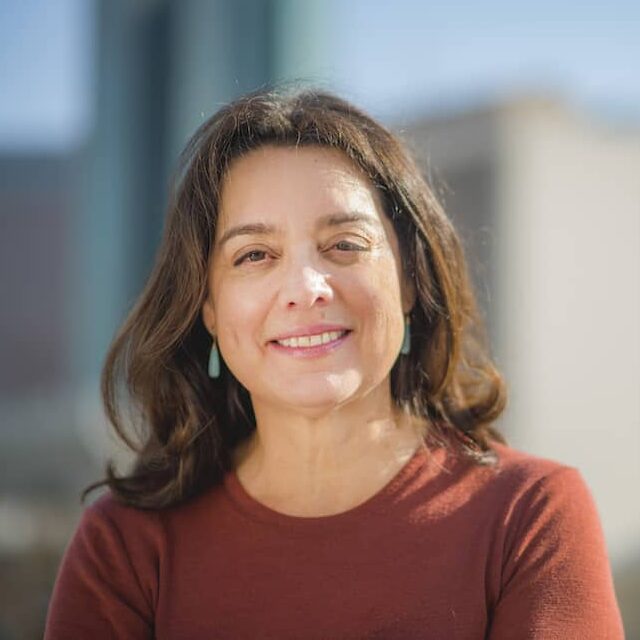About this story: On Thursday, April 16, twenty-two Colorado news organizations sought to capture a snapshot in the day of residents from all walks of life during the COVID-19 pandemic. This story of a Denver pastor is one of more than 60 reported that day. Read more here.
The Rev. Mark Lopez headed to his church after his regular run around Sloan’s Lake. It was 11:35 — a late start for him, but the pandemic seems to draw out his sleep. The lake in west Denver gets crowded despite social distancing, but heavy overnight snow kept people away this Thursday and his run was hushed and solitary and centering.
The night had been restless. His son-in-law’s father had died the day before. A suspected seizure and stroke. Son-in-law and daughter live in the basement of the Lopez home and they all stayed up late, discussing a funeral at which they could not gather to say goodbye.
Just a couple days earlier, Lopez was out running and saw two police officers pulling a body from the lake. After his run, he live-streamed to his congregation, asking them to pray for the man. He could be someone’s father. Someone’s brother.
“It just feels like death, disease, sickness are kind of dogging me a little bit, maybe even anxiety is the one that’s really dogging me,” Lopez said.
He named his church Granite Peaks more than 30 years ago because it fit Colorado, solid and soaring. Twenty men, whom he calls disciples, live there, dormitory-style — essential workers struggling to get by, get past whatever hamstrings them.
They have told him that they are less worried about the virus than they are about their livelihoods and what happens when “this gets to the other side,” Lopez said. “How many positions are going to be available for the glut of people who need jobs?”
He knows each trip to the church in Denver’s Villa Park neighborhood carries the risk of spreading or catching the COVID-19. He opened more room in the church for distancing, put hand sanitizer everywhere, set limits on how many could gather in the common spaces. His business is people, he said, “and now I am being told to stay away from people. That’s hard.
“I feel cut off and I have all this extra time and you kind of wonder if you are any good for anybody right now,” he said. “Let’s face it, I think we are all going through head trips right now. At night, you try to lay your head down and you feel numb.”
And so he is still holding services every Sunday, in the chapel with the lectern positioned between silk flowers and the hand sanitizer by the front door. He offers two morning services for 10 men at a time, live-streamed to the rest of the congregation, older Hispanics hunkered down at home.
Once at the church, he checked on a shower renovation project, learned that the men, antsy and cooped up by the overnight snow, had turned a storage shed into a place to smoke, and then he went into his office, shut the door and began working on Sunday’s sermon.
Lopez has been telling his congregation about King David, whose actions caused a plague, and of Isaac, who uprooted his family during a time of hunger, and of Jesus’s 40 days of temptation in the desert.
“I’m trying to fit the Bible in today’s narrative and help the church see how famine, pestilence and crisis shaped their faith. … Crisis is part of God’s plan and part of what I try to help them understand is that it is not what happens to us, it is what happens within us that matters.”
Who will you be now, Lopez asks his congregation. “Who will you be that you never could have been without this crisis?”
Find all of the Rev. Mark Lopez’s diaries here.
This story is brought to you by COLab, the Colorado News Collaborative.


